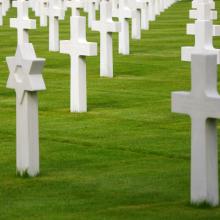NHCLC
With minority students now making up a majority of public school enrollments, a national group of Hispanic evangelicals is calling for strong ties between churches and schools to encourage better academic results.
The National Hispanic Christian Leadership Conference, which includes 40,000 U.S. churches, has launched a website with resources and a bilingual parental toolkit that its officials hope will bridge an “opportunity gap” between Hispanic and other students.
“We say that pastors and principals should meet,” said Carlos Campo, chair of the NHCLC’s Hispanic Education Alliance, at a recent National Press Club news conference. “We say that parents and professors should meet so that we no longer have these false dichotomies, these barriers that keep us apart.”
Ahead of his organization’s annual observance of National Hispanic Education Sunday on Sept. 7, Campo introduced other new programs, including “Becas and Bibles,” which encourages churches to give children Bibles and seed money for scholarships when they are baptized or christened. (“Beca” is the Spanish word for “scholarship.”)
For many pastors of urban congregations, “stepping up” to end gun violence stems from a very personal place — as they have been forced to bury their own neighbors and church members. According to Samuel Rodriguez, gun violence – especially in urban areas – deeply affects interfaith leaders there, who are declaring violence-free zones and taking action.
Faith-based leaders in Philadelphia and Chicago have rallied to fight gun violence. Heeding God’s Call, based in Philadelphia, holds prayer vigils at the locations of gun homicides as well as organizes gun-store campaigns that ask gun store owners to sign a code of conduct.
In Chicago, All Saints Episcopal Church organized CROSSwalk, a walk through downtown Chicago, which drew a few thousand people the past two years. Violence on Chicago streets has killed more than 800 young people in the last six years.
Nuenke addressed breaking the chain of violence and pain that we see in every community. He quoted 2 Corinthians 1:3-4 and Isaiah 61 as examples of God’s compassion and its life-changing, healing power.
“What would happen if the body of Christ more fully was involved in living out Christ’s compassion in a broken world?” Nuenke asked. “Sometimes people who are hurt or experience violence end up hurting other people. The care and compassion they might receive from the Lord Jesus will impact them more in 20-30 years than anything else.”

